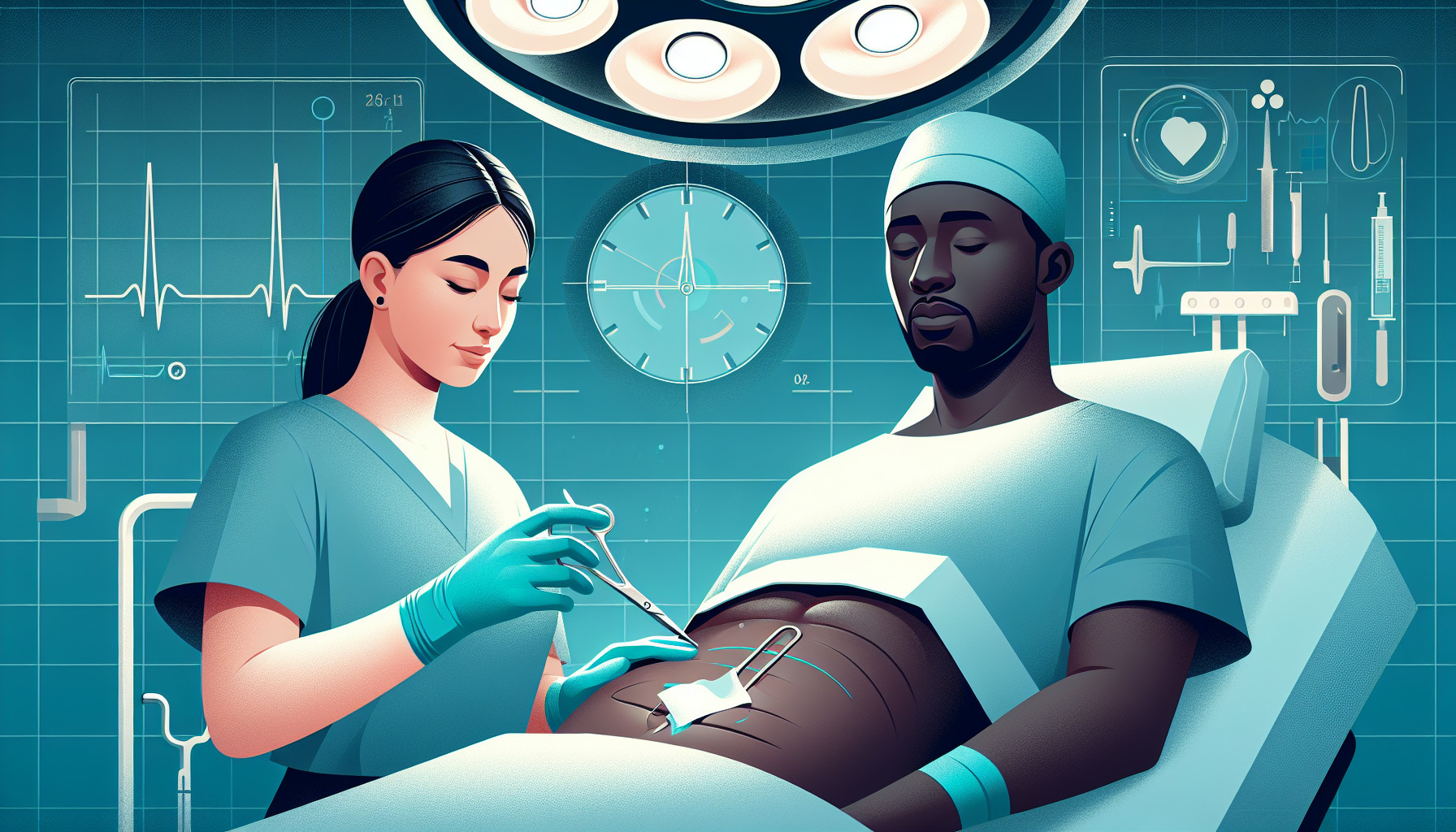Our Summary
This research paper aimed to find the best treatment for patients with complicated diverticulitis, a digestive disease. The researchers compared two main treatments: conservative treatment (like medications and lifestyle changes) and elective surgery (planned, non-emergency surgery).
They looked at results from 11 different studies involving 7415 patients. They found that patients who had conservative treatment had a higher chance of their diverticulitis coming back compared to those who had elective surgery. However, patients who had surgery were more likely to have complications and need a stoma (an opening in the body for waste removal) than those who had conservative treatment.
The study also found some evidence that surgery might lead to a better quality of life and be more cost-effective in the long run.
The researchers concluded that elective surgery should not be recommended to prevent emergency colostomy (a procedure to divert one end of the large intestine through a hole in the tummy) or complications. However, it might be a good idea for patients with complicated diverticulitis if the goal is to improve their quality of life and be cost-effective in the long-term.
FAQs
- What were the two main treatments compared in the research for diverticulitis?
- What were the findings of the study regarding the recurrence of diverticulitis in patients who had conservative treatment versus those who had elective surgery?
- Based on the research findings, when might elective surgery be recommended for patients with complicated diverticulitis?
Doctor’s Tip
A helpful tip a doctor might tell a patient about diverticulitis surgery is to carefully weigh the risks and benefits with your healthcare provider before making a decision. It’s important to understand that surgery may be necessary in some cases to prevent future complications, but it also comes with potential risks and changes to your lifestyle. Make sure to discuss all options and ask any questions you may have to make an informed decision that is best for your individual situation.
Suitable For
Patients who are typically recommended diverticulitis surgery are those with complicated diverticulitis who have recurrent episodes of the disease despite conservative treatment, or those who have complications such as abscesses, fistulas, or perforation. Surgery may also be recommended for patients who have severe symptoms that significantly impact their quality of life, or for those who are at a high risk of developing complications in the future. Ultimately, the decision to undergo surgery should be made on a case-by-case basis, taking into consideration the risks and benefits for each individual patient.
Timeline
Before diverticulitis surgery:
- Patient experiences symptoms of diverticulitis such as abdominal pain, bloating, constipation, and fever.
- Patient undergoes diagnostic tests such as a CT scan or colonoscopy to confirm the diagnosis.
- Patient receives conservative treatment such as antibiotics, pain medication, and dietary changes to manage the symptoms.
- If conservative treatment is not effective or if the patient has recurrent episodes of diverticulitis, surgery may be recommended.
After diverticulitis surgery:
- Patient undergoes elective surgery to remove the affected part of the colon or to create a colostomy.
- Patient may experience pain, discomfort, and fatigue post-surgery.
- Patient may need to stay in the hospital for a few days to monitor for any complications.
- Patient will need to follow a specific diet and lifestyle changes to promote healing and prevent future episodes of diverticulitis.
- Patient may need to follow up with their healthcare provider regularly to monitor their recovery and overall health.
What to Ask Your Doctor
Some questions a patient should ask their doctor about diverticulitis surgery include:
- What are the risks and benefits of elective surgery for diverticulitis?
- What are the potential complications of surgery, such as needing a stoma?
- How likely is it that my diverticulitis will come back if I choose conservative treatment instead of surgery?
- What is the recovery process like after diverticulitis surgery?
- How will surgery impact my quality of life in the long-term?
- Are there any alternative treatments to surgery that I can consider?
- What is the success rate of surgery for diverticulitis?
- How long will I need to stay in the hospital after surgery?
- What are the long-term effects of having surgery for diverticulitis?
- Will I need to make any lifestyle changes after surgery to prevent future episodes of diverticulitis?
Reference
Authors: Yeow M, Syn N, Chong CS. Journal: J Dig Dis. 2022 Feb;23(2):91-98. doi: 10.1111/1751-2980.13076. Epub 2022 Feb 8. PMID: 34965017
